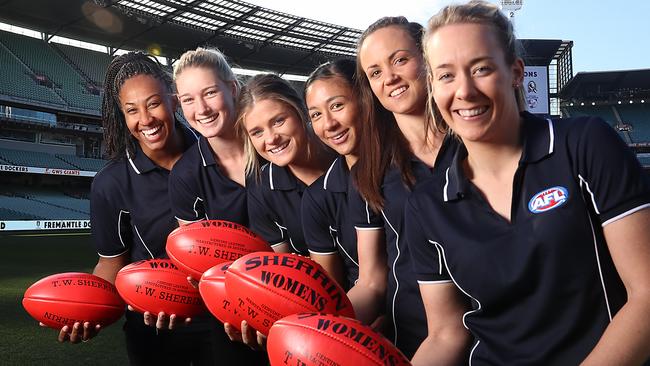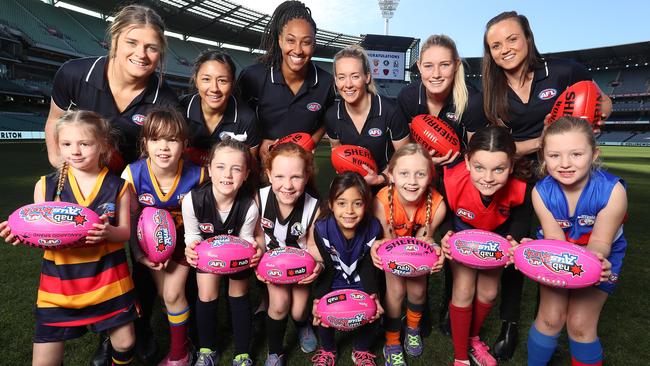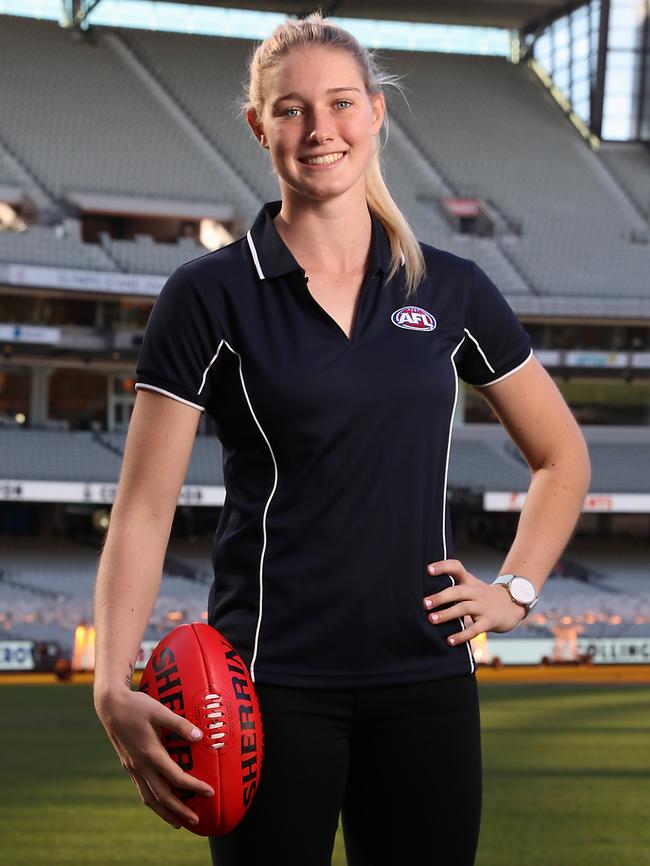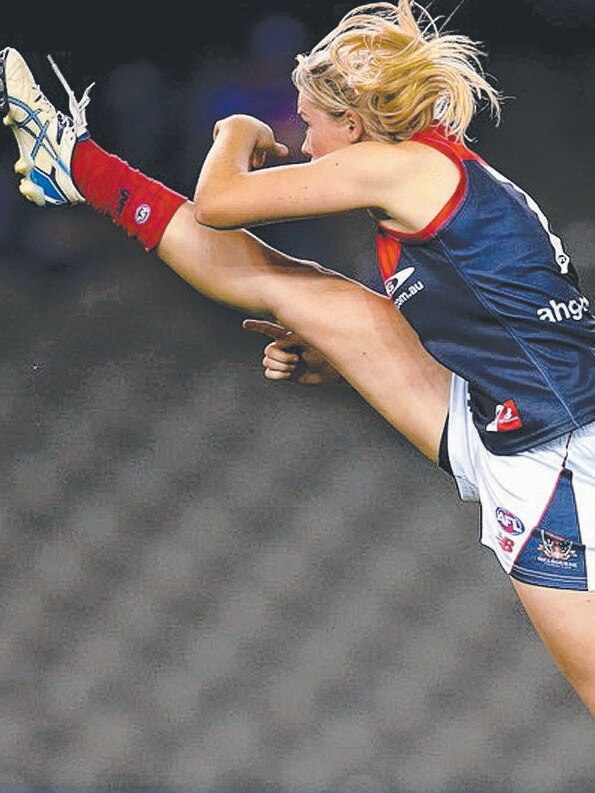National Women’s League: Collingwood, Carlton women’s footy licenses an obvious choice
COLLINGWOOD and Carlton as foundation clubs of the inaugural national women’s league — what a great move.

AFL
Don't miss out on the headlines from AFL. Followed categories will be added to My News.
COLLINGWOOD and Carlton as foundation clubs of the inaugural national women’s league — what a great move.
Even the way AFL chairman Mike Fitzpatrick, a former Blues captain, yesterday announced the women from Princes Park as one of eight foundation clubs — it was an affectionate, drawn-out “Caaaa-rlton” — it just feels right the old foes now have a new rivalry.
The women’s league is new territory for the AFL, but with the history of the Blues and Magpies, it already has a sense of tradition.
The Pies and the Blues met on May 7, 1892, in Collingwood’s first game. Both were foundation members of the VFL five years later.
It would be fitting if their women’s sides met in Round 1 of the as-yet-unnamed league in February.
Six of the eight teams announced yesterday were easy to pick.
Great news that @Adelaide_FC have won the license of the National Women's League! Check out the club website for more details #weflyasone
— Tex Walker (@texwalker13) June 15, 2016
There had to be teams in each of the AFL states and Adelaide, Greater Western Sydney and Brisbane Lions had no opposition.
The choice between Fremantle and West Coast was line ball. Western Australia is a very strong women’s footy state, and you can confidently back the Eagles to be next cab off the rank when the league expands.
In Victoria, Melbourne and the Western Bulldogs had made the hard running on women’s football and were always going to be in the vanguard of the revolution.
Collingwood being Collingwood — and Eddie being Eddie — was too big to ignore.
It showed how serious it was by hiring star defender Meg Hutchins as its women’s footy supremo and enticing wily administrator Graeme Allan back from the Giants to oversee the whole shebang.

It’s short odds Hutchins will be discarding the red, white and blue she has worn for the Bulldogs in exhibition games for the black and white.
With the Magpies over the line, that left Carlton, Geelong, North Melbourne, Richmond and St Kilda in a quest for the final Victorian licence.
Carlton played a very visible public game, chief executive Steven Trigg telling the Herald Sun in April it had big commercial backers Hyundai and Visy in place.
A month earlier Trigg revealed plans to correct a decades-long gender imbalance in membership.
Carlton’s female proportion was a league-low 28 per cent in 2015.
It has since risen to 30 per cent, and yesterday’s endorsement will certainly push that figure higher.
Well done to all involved @CarltonFC on the successful bid for an @AFL women's team. Great 4 the club and the Carlton community #BoundByBlue
— Bryce Gibbs (@BGibbsy4) June 15, 2016
Carlton backed the talk with a strong plan that ultimately was given the nod.
North chief Carl Dilena said in April the club not only wanted a licence, it deserved one, highlighting its links with Melbourne Uni Women’s Football Club. Not only that, a women’s team playing out of Arden St would be a step forward in the AFL competitive balance debate, Dilena said.
St Kilda highlighted the strength of the women’s game in bayside suburbs, sending a mascot called Angelica skipping through social media to drum up support.
Richmond and Geelong had the lowest-profile bids, but were still deadly serious.
The AFL got it right with eight teams. Six would have probably been the perfect match for the available talent, but only two teams in Victoria would not have washed. Ten clubs would have stretched the talent pool too far.


The game’s best women’s player, Daisy Pearce, is ecstatic at the prospect of pre-season training starting in November.
The ball magnet will be Melbourne’s marquee signing — after all, she is captain in the Demons’ exhibition games and a club staff member.
Pearce recalled AFL chief executive Gillon McLachlan saying only 16 months ago that there would be a women’s league in 2017, bringing forward his predecessor Andrew Demetriou’s timetable by three years.
“Now we know what’s coming, we can get to work making it a really good standard and good product,” she said.
McLachlan was right — the time is now.
Western Bulldogs defender Matthew Boyd has many reason to welcome the revolution — the main one, his daughter.
“Chloe loves playing football, and whether she chooses to pursue it as a career later in life or not, the fact that women and girls now have a pathway to become professional is just such a positive outcome,” Boyd told the Herald Sun.
“I’m proud our club has played such an important role in the start of the new league.
“You never know, maybe one day Chloe will also have the privilege of becoming a Bulldogs player — a daughter of the west.”
eliza.sewell@news.com.au
Originally published as National Women’s League: Collingwood, Carlton women’s footy licenses an obvious choice




